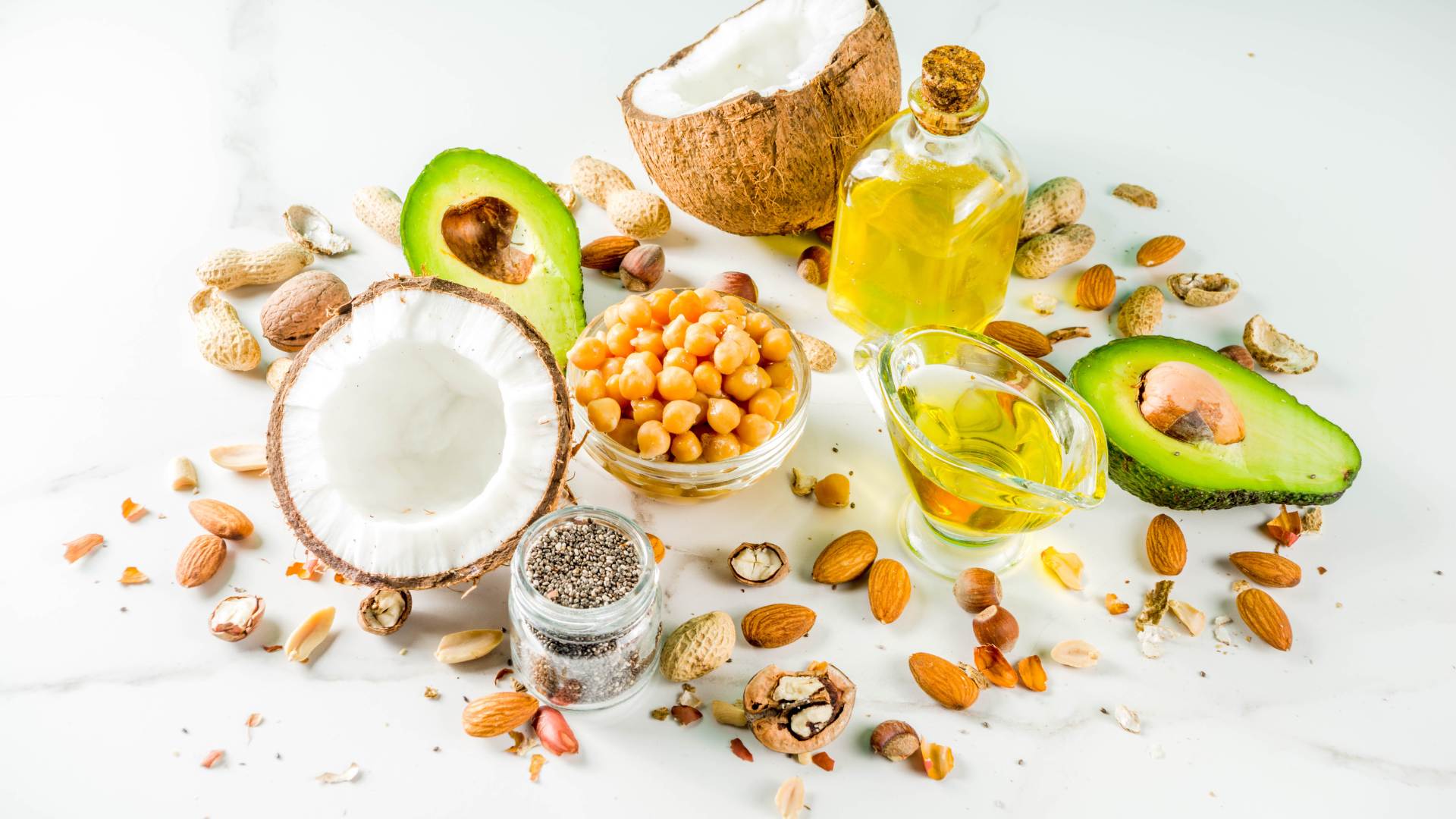For years, dietary fat was seen as the enemy of a healthy diet, leading to a rise in low-fat, high-sugar foods. However, modern nutritional science has shown that not all fats are created equal. In fact, healthy fats are crucial for our bodies, playing a vital role in brain function, hormone production, and vitamin absorption.
This guide will help you understand the different types of dietary fats and why you should embrace the healthy ones while limiting the unhealthy ones.
The Three Main Types of Fat
Dietary fats are categorized into three main types: saturated, unsaturated, and trans fats.
| Fat Type | Description & Impact | Food Sources |
|---|---|---|
| Unsaturated Fats | Often considered the "healthy" fats, they are liquid at room temperature. They can help reduce inflammation, lower bad (LDL) cholesterol, and improve heart health. They are crucial for brain health and cell function. | Avocados, nuts (almonds, walnuts), seeds (chia, flax), olive oil, and fatty fish (salmon, mackerel). |
| Saturated Fats | Typically solid at room temperature. While a small amount is part of a healthy diet, too much can raise bad (LDL) cholesterol levels, increasing the risk of heart disease. The World Health Organization (WHO) recommends limiting saturated fats to less than 10% of your total energy intake. | Fatty cuts of meat, butter, cheese, and coconut oil. |
| Trans Fats | The "unhealthy" fat that should be avoided. These are often created through a process called hydrogenation, which makes liquid oils solid. They raise bad (LDL) cholesterol and lower good (HDL) cholesterol, significantly increasing the risk of heart disease. The WHO aims to eliminate industrially-produced trans fats from the global food supply. | Fried foods, some processed baked goods, and some margarines. |
Why You Need Healthy Fats
Healthy fats, particularly unsaturated fats, are essential for several key bodily functions:
- Brain Health: Fats are a major component of brain tissue, and healthy fats like omega-3s are vital for cognitive function, memory, and mood regulation.
- Hormone Production: They are a building block for many of the body's hormones, which regulate metabolism, stress, and other critical processes.
- Vitamin Absorption: Fat-soluble vitamins (A, D, E, and K) require fat to be properly absorbed into the body.
- Satiety and Energy: Healthy fats help you feel full and satisfied after a meal, which can prevent overeating and support weight management. They also provide a great source of sustained energy.
Making Smart Choices
Focus on incorporating healthy, unsaturated fats into your diet every day.
- Snack on nuts and seeds: A handful of almonds or walnuts is a great way to get healthy fats and fiber.
- Use healthy oils: Cook with olive or avocado oil instead of butter or vegetable shortening.
- Eat fatty fish: Aim for at least two servings of fatty fish like salmon or mackerel per week to get a boost of omega-3s.
- Read the labels: Be mindful of packaged and processed foods, which often contain unhealthy trans and saturated fats.
By understanding that healthy fats are not something to be feared, you can make more informed food choices and enjoy their many benefits for your overall health.
